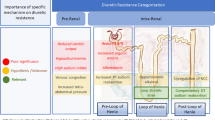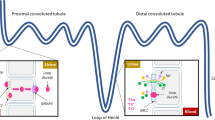Abstract
N-terminal pro-B-type natriuretic peptide (NT-proBNP) has been used as a tool for diagnosis, severity assessment and prognostication of congestive heart failure (CHF) in adults, with specific cut off values for diagnosis and denoting points of intervention. However, there is scarcity of paediatric literature regarding role of NT-proBNP as a marker of heart failure severity and prognostication. So, this study was done to assess the utility of NT-proBNP as a marker of severity of heart failure in children with congenital heart diseases. Single centre, prospective observational study. Children (1 month to 5 years), with congenital heart disease, admitted in the paediatric wards with varying severity of CHF were enrolled. Heart failure severity grading was done according to Laer modification of Ross Classification at the time of presentation to hospital and children were classified as having no/grade I CHF (score: 0–2); mild/grade II CHF (score 3–6); moderate/grade III CHF (score 7–9) or severe/grade IV CHF (score 10–12). NT-proBNP levels were measured within 24 h of admission. Eighty children with congenital heart disease were enrolled in this study. As per modified Ross Classification, 11 had grade I/No heart failure (13.7%), 32 children had grade II/mild heart failure (40%), 36 had grade III/moderate heart failure (45%) and only 1 had grade IV/severe heart failure (1.25%). The median NT-proBNP levels (IQR) in the above mentioned grades of heart failure were found to be 321.11 (211.1–411.78 pg/ml), 750.62 (474.62–995.2 pg/ml), 4159.61 (1440.59–11,857 pg/ml) and 11,320.34 pg/ml, respectively. Seven children (8.75%) expired. Median NT-proBNP value in seven children who died was significantly higher than those who survived [median (IQR): 11,681.01 pg/ml (10,092.72–14,754 pg/ml) vs 839.4 pg/ml (456.67–3288.09 pg/ml), p value < 0.001]. NT-proBNP level of 520.2 pg/ml predicted grade II (mild heart failure) or more severe grades of heart failure with Sensitivity, Specificity, Negative Predictive Value and Positive Predictive Value of 83%, 91%, 57.1% and 98%, respectively. NT-proBNP levels increase progressively with increasing severity of CHF and can be used as a marker of severity of heart failure in children with congenital heart disease presenting with CHF.

Similar content being viewed by others
References
van der Linde D, Konings E, Slager M, Witsenburg M, Helbing W, Takkenberg P et al (2011) Birth prevalence of congenital heart disease worldwide. J Am Coll Cardiol 58(21):2241–2247
Sahin M, Portakal O, Karagoz T, Hasçelik G, Ozkutlu S (2010) Diagnostic performance of BNP and NT-ProBNP measurements in children with heart failure based on congenital heart defects and cardiomyopathies. Clin Biochem 43:1278–81
Mir T, Marohn S, Laer S, Eiselt M, Grollmus O, Weil J (2002) Plasma concentrations of N-terminal pro-brain natriuretic peptide in control children from the neonatal to adolescent period and in children with congestive heart failure. Pediatrics 110(6):76–82
Lin C, Zeng X, Zhang J, Meng X (2014) Determining the optimal cut off values of plasma N-terminal pro–B-type natriuretic peptide levels for the diagnosis of heart failure in children of age up to 14 years. J Card Fail 20(3):168–173
Maher K, Reed H, Cuadrado A, Simsic J, Mahle WT, Deguzman M et al (2008) B-type natriuretic peptide in the emergency diagnosis of critical heart disease in children. Paediatrics 121(6):1484–1488
Wu YR, Chen SB, Sun K, Huang MR, Zhang YQ, Chen S (2006) Diagnostic value of the currently used criteria and brain natriuretic peptide for diagnosing congestive heart failure in children with congenital heart disease. Zhonghua Er Ke Za Zhi 44:728–732
Koulouri S, Acherman R, Wong P, Chan L, Lewis A (2004) Utility of B-type natriuretic peptide in differentiating congestive heart failure from lung disease in pediatric patients with respiratory distress. Pediatr Cardiol 25(4):341–346
Cohen S, Springer C, Avital A, Perles Z, Rein A, Argaman Z et al (2005) Amino-terminal pro-brain-type natriuretic peptide: heart or lung disease in pediatric respiratory distress? Pediatrics 115(5):1347–1350
Sahingozlu T, Karadas U, Eliacik K, Bakiler A, Ozdemir Karadas N, Kanik M et al (2015) Brain natriuretic peptide: the reason of respiratory distress is heart disease or lung disease? Am J Emerg Med 33(5):697–700
Hammerer-Lercher A, Geiger R, Mair J, Url C, Tulzer G, Lechner E et al (2006) Utility of N-terminal pro-B-type natriuretic peptide to differentiate cardiac diseases from noncardiac diseases in young pediatric patients. Clin Chem 52(7):1415–1419
Laer S, Mir TS, Behn F et al (2002) Carvedilol therapy in pediatric patients with congestive heart failure: a study investigating clinical and pharmacokinetic parameters. Am Heart J 143:916–922
Sugimoto M, Manabe H, Nakau K, Furuya A, Okushima K, Fujiyasu H et al (2010) The role of N-terminal pro-B-type natriuretic peptide in the diagnosis of congestive heart failure in children. Circ J 74:998–1005
Kirk R, Dipchand AI, Rosenthal DN et al (2014) The International Society for Heart and Lung Transplantation guidelines for the management for pediatric heart failure. J Heart Lung Transplant 33:888–909
Iacob D, Butnariu A, Leucuţa D, Samaşca G, Deleanu D, Lupan I (2017) Evaluation of NT-proBNP in children with heart failure younger than 3 years old. Rom J Intern Med 55(2):69–74
Ozhan H, Albayrak S, Uzun H, Ordu S, Kaya A, Yazıcı M (2007) Correlation of plasma B-type natriuretic peptide with shunt severity in patients with atrial or ventricular septal defect. Pediatr Cardiol 28(4):272–275
Ozyurt A, Baykan A, Argun M, Pamukcu O, Uzum K, Narin F et al (2015) Does N-terminal pro-brain natriuretic peptide correlate with measured shunt fraction in children with septal defects? Cardiol Young 26(3):469–476
Jamei Khosroshahi A, Molaei A, Samadi M, Eskandartash E (2019) The correlation between serum level of brain natriuretic peptide and amount of left to right shunt. J Cardiovasc Thorac Res 11(1):68–71
Funding
None.
Author information
Authors and Affiliations
Contributions
RRC: Acquisition of data, analysis, interpretation and drafting of manuscript; SK: Concept and design, analysis, interpretation, revision and final approval; RG: Concept and design, interpretation and final approval
Corresponding author
Ethics declarations
Conflict of interest
The authors declare no conflict of interest.
Additional information
Publisher's Note
Springer Nature remains neutral with regard to jurisdictional claims in published maps and institutional affiliations.
Rights and permissions
Springer Nature or its licensor (e.g. a society or other partner) holds exclusive rights to this article under a publishing agreement with the author(s) or other rightsholder(s); author self-archiving of the accepted manuscript version of this article is solely governed by the terms of such publishing agreement and applicable law.
About this article
Cite this article
Chowdhury, R.R., Kaur, S. & Gera, R. N-Terminal Pro-B-Type Natriuretic Peptide as a Marker of Severity of Heart Failure in Children with Congenital Heart Diseases. Pediatr Cardiol 44, 1716–1720 (2023). https://doi.org/10.1007/s00246-023-03259-x
Received:
Accepted:
Published:
Issue Date:
DOI: https://doi.org/10.1007/s00246-023-03259-x




